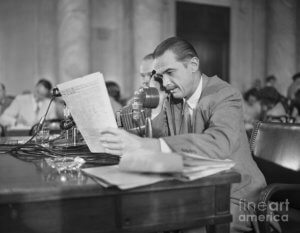
The dedicated legal team of Caputo & Mariotti
Demystifying Estate Planning: The Crucial Role of an Estate Planning Attorney
August 7, 2023
Navigating the intricate realm of estate planning might seem overwhelming. But as daunting as it may be, estate planning is a non-negotiable aspect of life that comes with grown-up responsibilities. Let’s face it—our possessions, whether it’s a family home, a cherished business, or even a simple bank account, have both financial and emotional value. Making sure these assets are managed and passed down according to our wishes is imperative. This is where an estate planning attorney can play an invaluable role.
What Is Estate Planning?
Estate planning is the comprehensive process of arranging the management and disposal of a person’s estate during their life and at and after death. This involves a variety of legal tools, including wills, trusts, powers of attorney, and healthcare directives. The primary aim is to provide you with the control over who inherits your estate, what they inherit, and when they inherit it.
Why Estate Planning Matters

- Asset Distribution: At its core, estate planning is about ensuring your assets go to the intended recipients. The absence of a proper estate plan could mean that your state’s laws will decide how your property is divided, often leading to outcomes you wouldn’t have chosen.
- Minimizing Taxes: With no plan in place, the tax hit on your estate and beneficiaries can be significant. Estate planning allows you to minimize the burden of state and federal estate taxes through mechanisms like trusts.
- Avoiding Probate: Probate is the judicial process where a will is validated, and the estate is administered. This process can be time-consuming, stressful, and costly. Proper estate planning helps your heirs avoid the complexity and inconvenience of probate.
The Functions of an Estate Planning Attorney
An estate planning attorney fulfills a range of critical functions aimed at ensuring your assets are managed and transferred according to your wishes. Here are five primary functions of an estate planning attorney:
1. Drafting Wills and Trusts
One of the most basic yet essential functions of an estate planning attorney is to help you draft your will or establish a trust. The attorney ensures that these documents are legally sound and reflect your wishes accurately, minimizing the risk of disputes or challenges down the line.
2. Tax Planning
Estate planning attorneys offer crucial advice on the tax implications of different estate planning options. They help structure your estate in a way that minimizes tax liabilities for you and your beneficiaries, navigating complex state and federal tax laws.
3. Establishing Power of Attorney
If you become incapacitated and can’t make decisions for yourself, a power of attorney ensures that someone you trust will make these decisions on your behalf. The attorney helps in establishing a durable power of attorney and guides you through the legal requirements and implications.
4. Creating Healthcare Directives
Also known as a living will, healthcare directives specify your wishes for medical treatment if you’re unable to communicate your preferences yourself. An estate planning attorney will help draft this document and ensure that it complies with state laws.
5. Asset Protection
An estate planning attorney can devise strategies to protect your assets during your lifetime. This could involve shielding assets from creditors, lawsuits, or divorce settlements.
Each of these functions is vital for different reasons, providing a comprehensive legal framework for the management and distribution of your estate. The role of an estate planning attorney is multifaceted and essential for anyone serious about their long-term financial planning.
The Importance of an Estate Planning Attorney in the Howard Hughes Case

In a complex estate like Howard Hughes’, expert legal advice could have made a big difference. First, a solid will or trust could have avoided much of the chaos. Second, tax advice could have saved money for the estate and heirs. Third, power of attorney and healthcare directives could have been set up, especially important given Hughes’ declining health. Finally, the lack of these steps led to the messy outcome, emphasizing the need for a skilled estate planning attorney.
Conclusion: The Importance of an Estate Planning Attorney
When it comes to planning for the future, an estate planning attorney is as indispensable as a GPS is for a road trip. To find out more about our team and how we can help guide you through this complex legal journey, visit Caputo & Mariotti’s Attorneys. Ready to get started? Contact us here for a free consultation.
Frequently Asked Questions (FAQs)
Q1: What’s the difference between a will and a trust?
A will is a legal document outlining how you want your assets distributed after your death. A trust, on the other hand, is a legal entity holding assets for the benefit of specific people or causes. Learn more in the What is Estate Planning section.
Q2: Is estate planning only for the wealthy?
No, estate planning is essential for anyone who owns any form of assets, whether it’s real estate, bank accounts, or even digital assets. Read more about the ‘Why’ behind estate planning.
Q3: How often should I update my estate plan?
Your estate plan should be revisited and potentially updated whenever significant life changes occur, such as marriage, divorce, or the birth of a child. Find out more about the functions of an estate planning attorney.
Q4: Can I draft my own estate planning documents?
While there are DIY options available, having a skilled estate planning attorney ensures that your documents are legally sound and tailored to your specific needs. Learn why you need an estate planning attorney.
Q5: What should I bring to my first meeting with an estate planning attorney?
Typically, you should bring financial documents, a list of assets, and any existing wills or trusts you may have. Learn more about selecting the right legal partner for your estate planning needs.
Q6: Where can I find a skilled estate planning attorney?
For expert guidance in navigating the complexities of estate planning, consider contacting Caputo Mariotti’s team of skilled attorneys.

